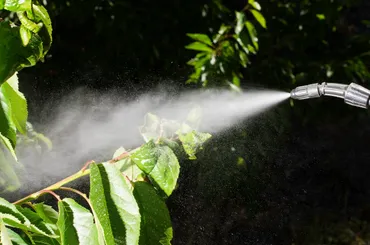
A 21-day mosquito and tick spraying program typically involve a recurring schedule of applying insecticides to outdoor areas to control mosquito and tick populations.
These programs are commonly implemented during warm months when these pests are most active and can pose a threat to human health due to the potential transmission of diseases.
Here’s a general outline of what a 21-day mosquito and tick spraying program entails:
Initial Assessment:
– Evaluate the property to identify areas with high mosquito and tick activity.
– Determine the types of vegetation, standing water sources, and other factors contributing to pest infestation.
Customized Treatment Plan:
– Develop a targeted treatment plan based on the specific needs and characteristics of the property.
– Select appropriate insecticides and application methods.
Initial Treatment:
– Apply the first round of insecticide to high-risk areas.
– Focus on places where mosquitoes and ticks breed, such as standing water, dense vegetation, and shaded areas.
Monitoring:
– Regularly monitor the treated areas for effectiveness and any signs of increased pest activity.
Follow-Up Treatments:
– Conduct additional treatments approximately every 21 days to maintain control.
– Adjust the treatment plan as needed based on monitoring results.
Communication and Education:
– Communicate with property owners or residents about the treatment schedule and any precautions they should take.
– Provide information on how to reduce mosquito and tick habitats around the property.
Environmentally Friendly Options:
– Use environmentally friendly or organic insecticides, to minimize the impact on non-target organisms.
Record Keeping:
– Maintain records of treatments, monitoring results, and any changes in pest activity.
– Use this information to adjust the treatment plan for future seasons.
Weather Considerations:
– Take into account weather conditions that may affect the efficacy of treatments, such as rainfall and temperature.
Post-Season Evaluation:
– Evaluate the overall success of the program at the end of the season.
– Gather feedback from property owners and make recommendations for future pest control measures.
It’s important to note that the effectiveness of mosquito and tick control programs can vary based on factors such as the type of insecticides used, weather conditions, and the specific characteristics of the treated areas.
